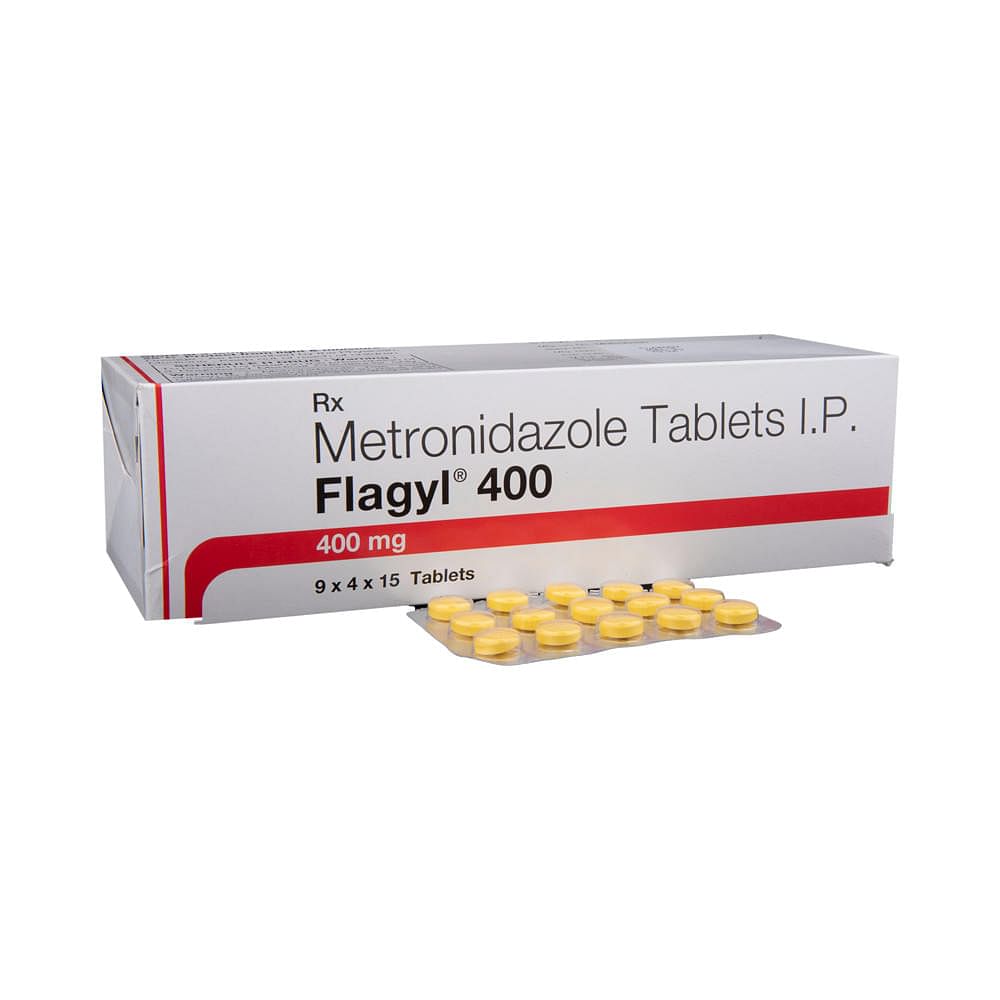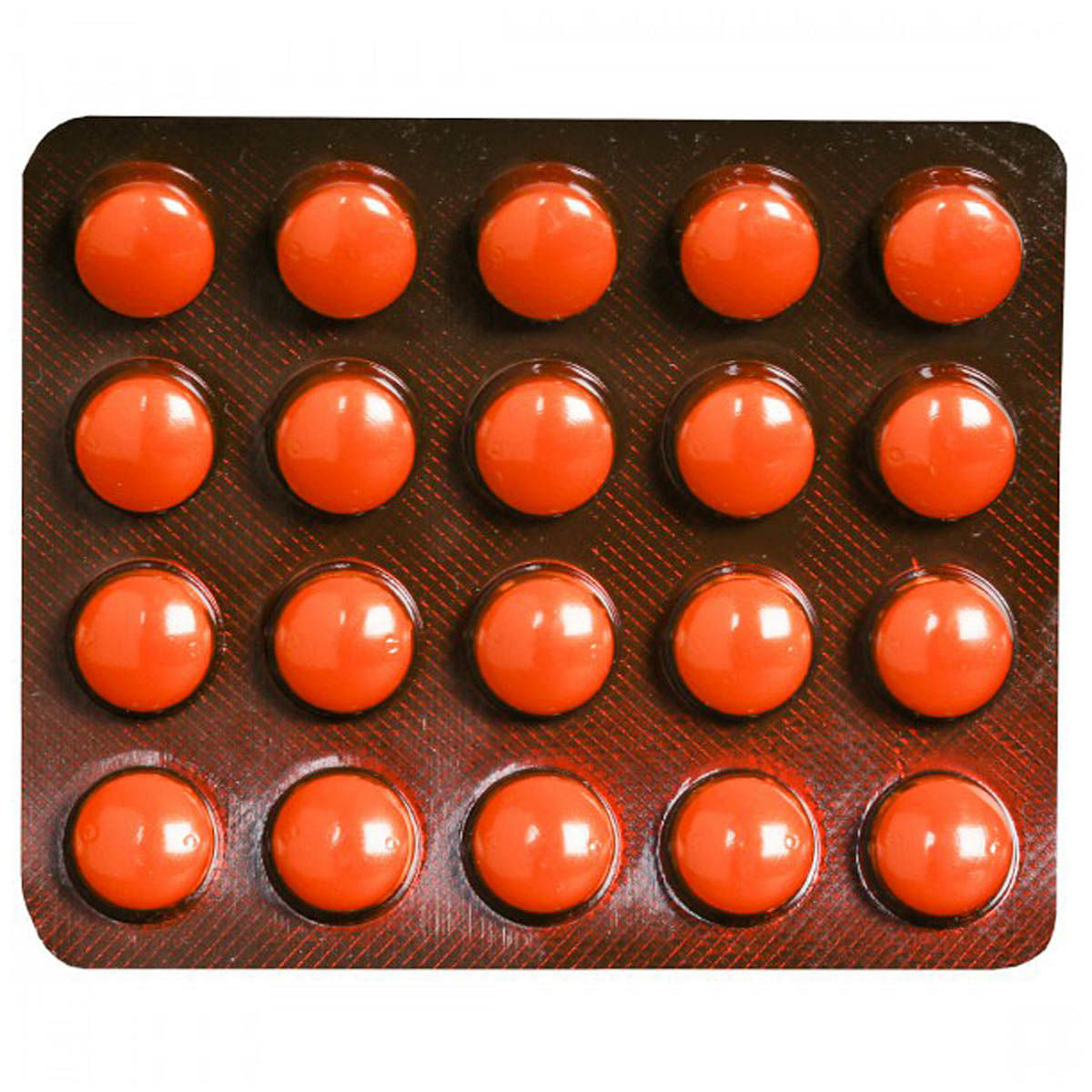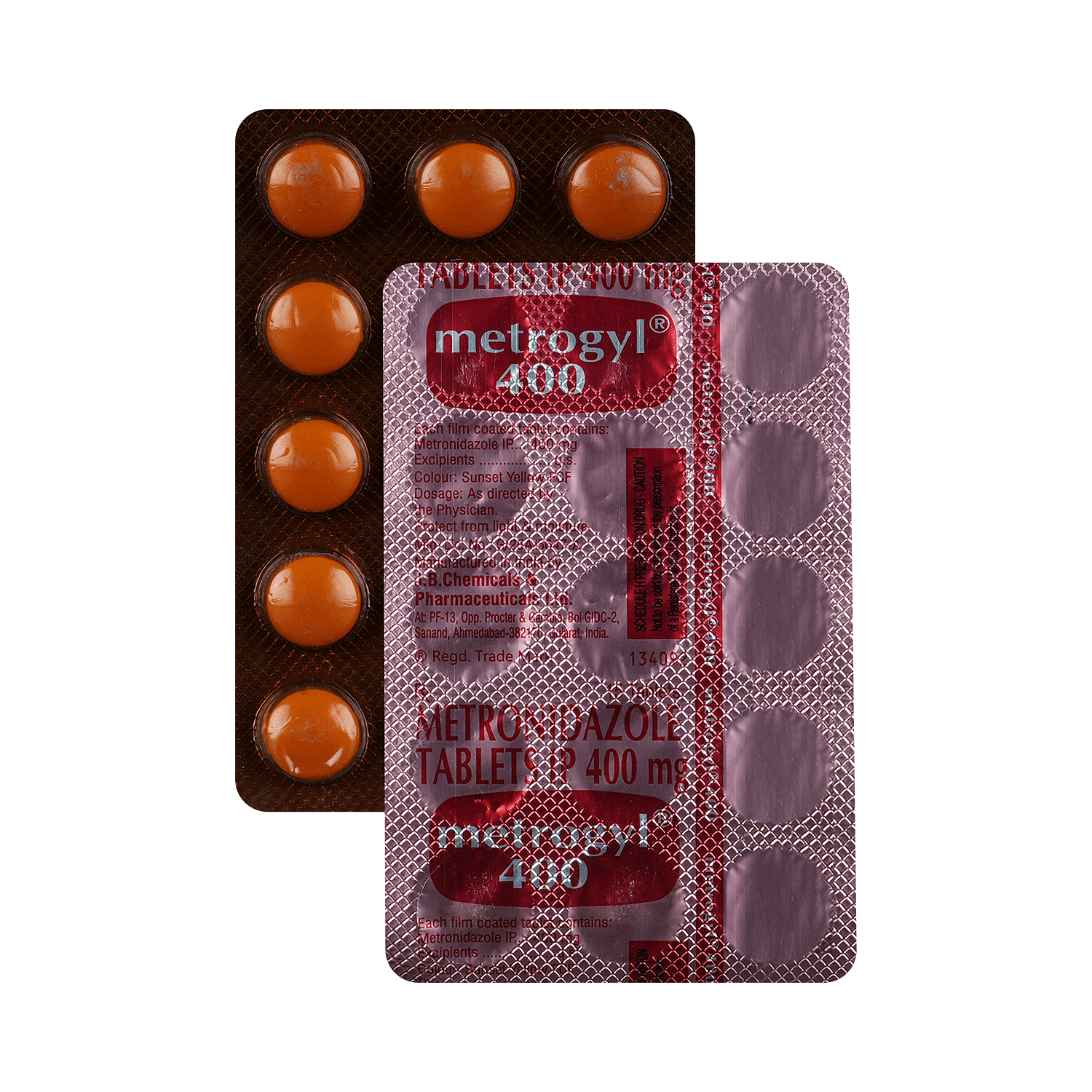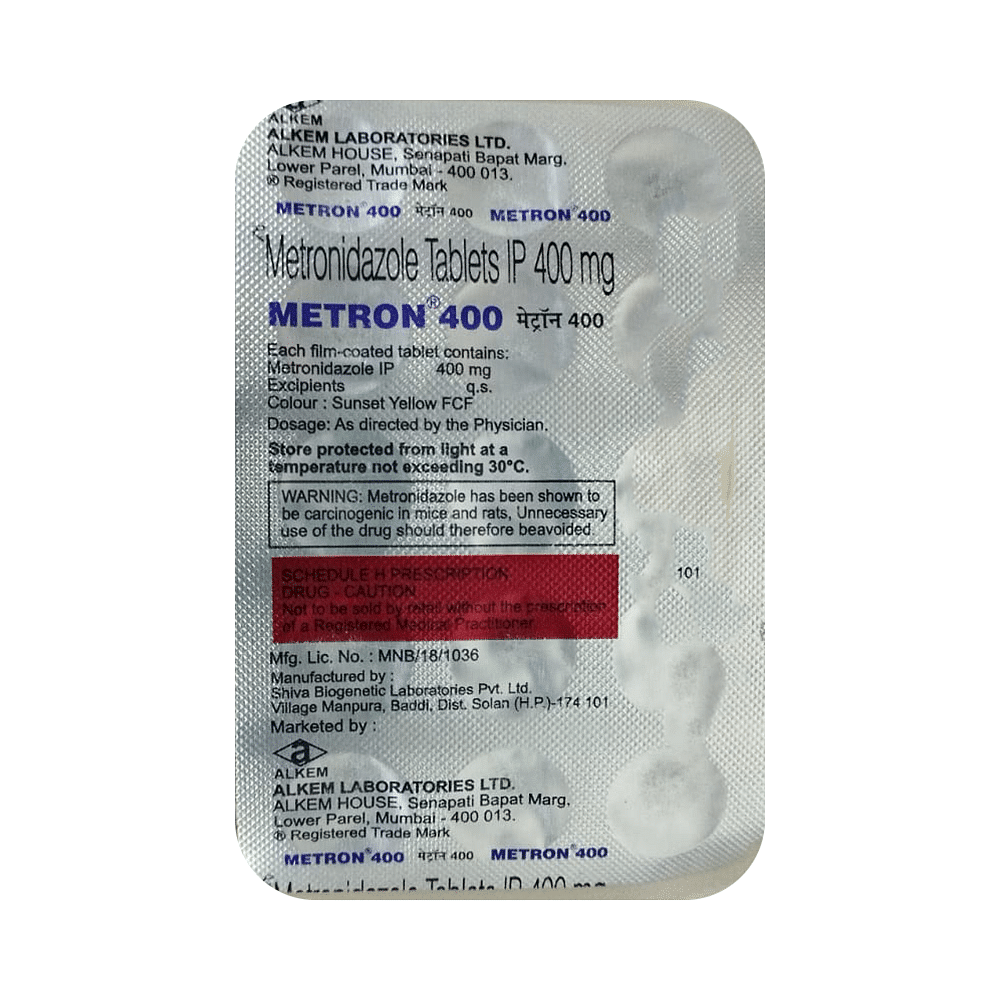
Unimegyl 400mg Tablet
Manufacturer
Torrent Pharmaceuticals Ltd
Salt Composition
Metronidazole (400mg)
Key Information
Short Description
Unimegyl 400mg Tablet is an antibiotic medicine that helps your body fight infections caused by bacteria and parasites.
Dosage Form
Tablet
Introduction
Unimegyl 400mg Tablet helps prevent an infection after surgery. It is also used in the treatment of dental infections, leg ulcers, and pressure sores. This medicine is best taken after eating some food. It should be taken at the same time each day to get the most benefit. The amount you are advised will depend on what you are being treated for and how bad it is, but you should take this antibiotic exactly as prescribed by your doctor. Your symptoms may get better after a short time but do not stop taking it until you have finished a full course of treatment, even if you feel well. If you stop taking it early, some bacteria may survive, and the infection may come back. Do not drink alcohol while taking this medicine and for a few days after stopping it. Otherwise, you may get unpleasant side effects like nausea, vomiting, and stomach pain.
Directions for Use
Take this medicine in the dose and duration as advised by your doctor. Swallow it as a whole. Do not chew, crush or break it. Unimegyl 400mg Tablet is to be taken with food.
Safety Information
Side Effects
Headache Dryness in the mouth Nausea A slight metallic taste in the mouth
Alcohol Warning
Consuming alcohol while taking Unimegyl 400mg Tablet may cause symptoms such as flushing, increased heart beat, nausea, thirst, chest pain and low blood pressure (Disulfiram reaction).
Breastfeeding Warning
Unimegyl 400mg Tablet should be used with caution during breastfeeding. Breastfeeding should be held until the treatment of the mother is completed and the drug is eliminated from her body. If a single dose of Unimegyl 400mg Tablet is used, it is recommended to hold breastfeeding for 12-24 hours to allow the removal of the drug.
Pregnancy Warning
Unimegyl 400mg Tablet is generally considered safe to use during pregnancy. Animal studies have shown low or no adverse effects to the developing baby; however, there are limited human studies.
Interacting Medicines
Disulfiram Acenocoumarol Phenobarbitone Warfarin
How it works
Unimegyl 400mg Tablet is an antibiotic. It kills the bacteria and other microorganisms that cause infections by damaging their DNA.
Quick Tips
Unimegyl 400mg Tablet treats infections caused by bacteria and parasites. It may cause side effects like nausea, stomach upset, and a metallic taste in the mouth. Unimegyl 400mg Tablet used in a high dose or for a prolonged time increases the risk of side effects such as nerve damage. Take it only as prescribed by your doctor. Do not drink alcohol during or for 2-3 days after treatment with this medicine. You may develop nausea, vomiting, flushing, and headache. Inform your doctor if you have liver disease. Your dose may need to be adjusted in severe liver disease.
Related Medicines

Flagyl 400 Tablet

Metrogyl 400 Tablet

Metrogyl 400 Tablet

Metroga 400mg Tablet

Metrozole 400mg Tablet

Metropen 400mg Tablet

Orizole 400mg Tablet

Metron 400mg Tablet

Metnigyl 400mg Tablet

Metro 400mg Tablet
Frequently asked questions
How long does Unimegyl 400mg Tablet take to work?
Usually, Unimegyl 400mg Tablet starts working within one hour after ingestion. However, it may take two to three days to experience significant symptom improvement. If you do not see a reduction in symptoms, consult your doctor.
Can I drink alcohol while using Unimegyl 400mg Tablet?
No, avoid alcohol consumption while taking Unimegyl 400mg Tablet. Additionally, you should refrain from alcohol for at least three days after finishing the full course. Alcohol may cause an unpleasant reaction (disulfiram-like) with symptoms such as stomach pain, nausea, vomiting, headache, flushing, or redness of the face.
Can Unimegyl 400mg Tablet cause a metallic taste?
Yes, Unimegyl 400mg Tablet may cause a temporary metallic taste. You can reduce this metallic taste by staying hydrated, brushing your teeth after meals, and chewing sugar-free gum or mints.
What if I take more than the recommended dose of Unimegyl 400mg Tablet?
If you have taken Unimegyl 400mg Tablet in excess (more than the recommended dose), contact your doctor immediately or report to the nearest hospital. Overdose of Unimegyl 400mg Tablet can lead to loss of appetite, metallic taste, headache, dizziness, insomnia, or drowsiness.
Can I stop taking Unimegyl 400mg Tablet when I feel better?
No, do not stop taking Unimegyl 400mg Tablet and finish the full course of treatment even if you start feeling better. Your symptoms may improve before the infection is completely cured. Therefore, stopping the medication prematurely might lead to your infection returning. Consult your doctor before stopping Unimegyl 400mg Tablet and follow their advice.
What if there is no improvement after using Unimegyl 400mg Tablet?
If you did not feel better after completing the full course of treatment, inform your doctor. If your symptoms are worsening during treatment, also inform your physician.


